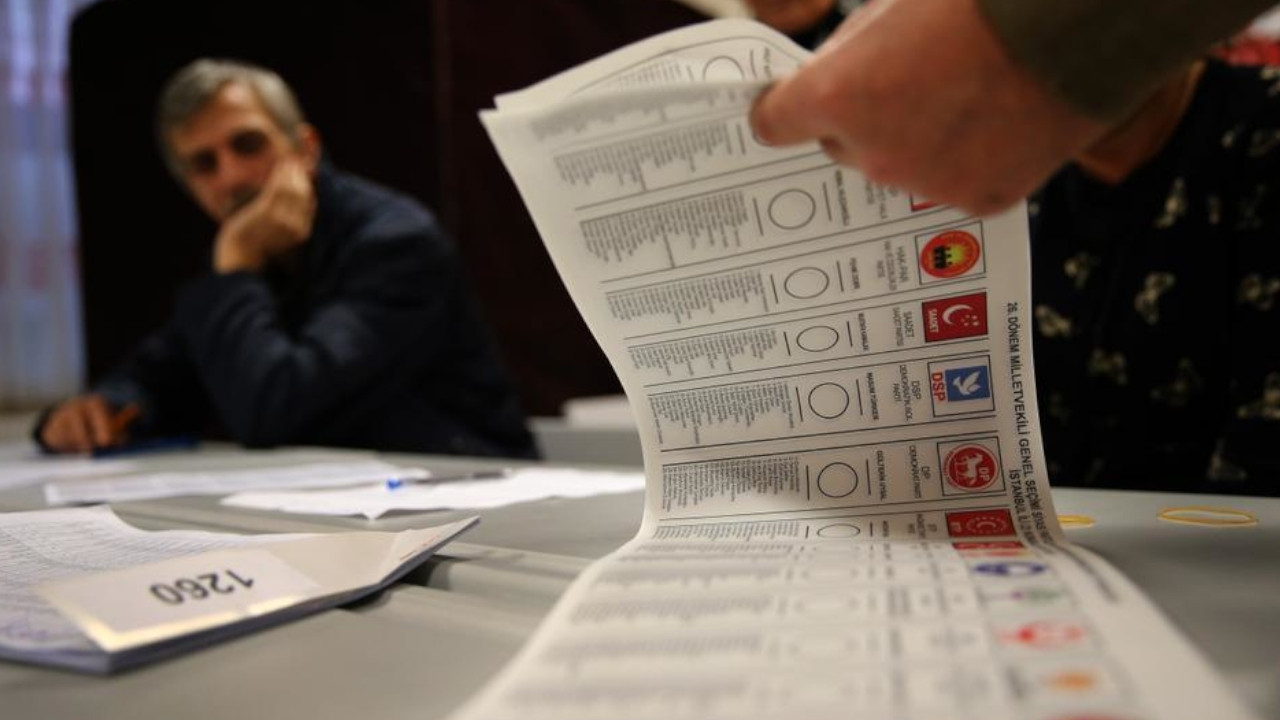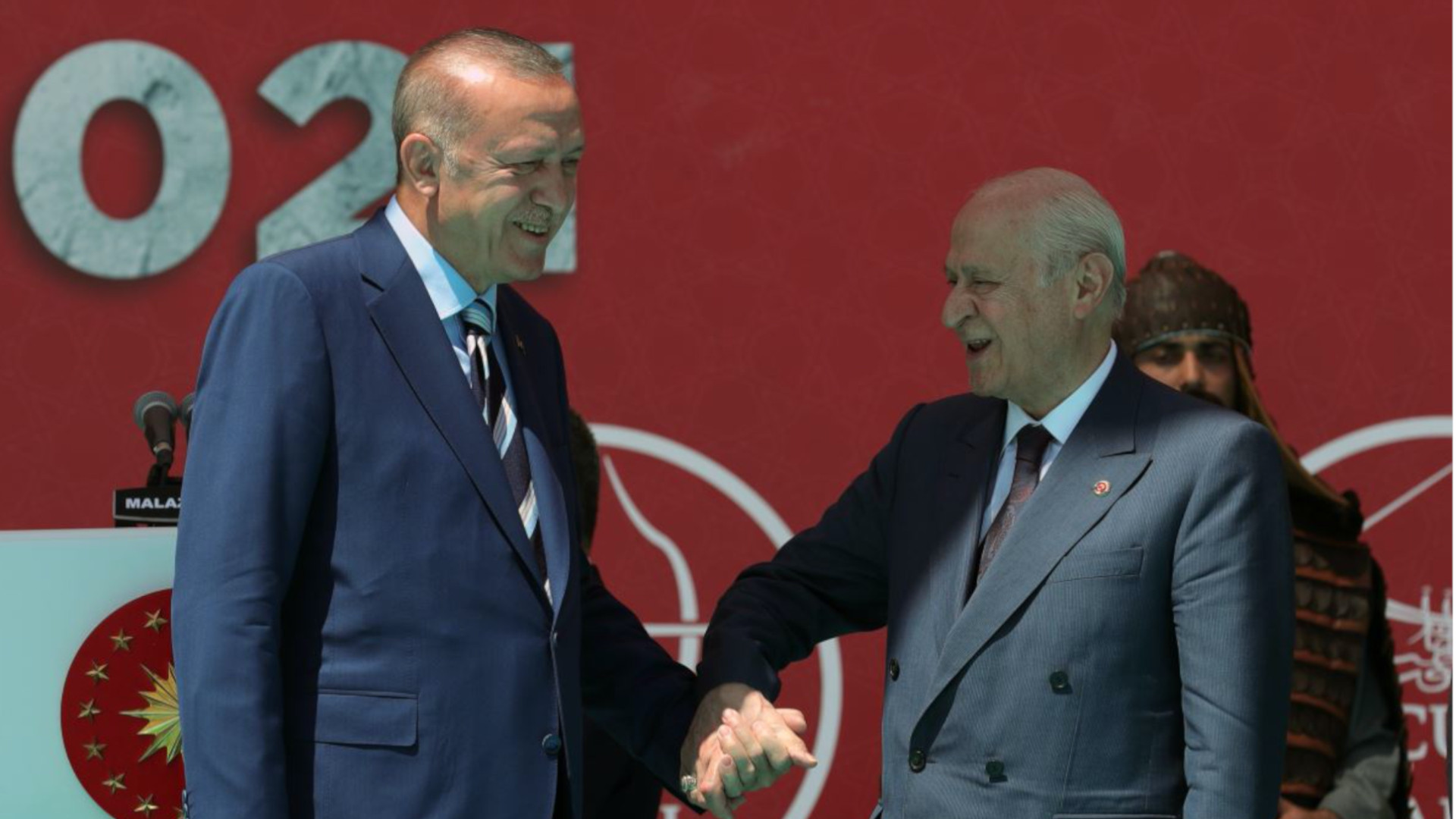Democracy, early elections, and contractors
There will be early elections, but those who think that the problem with our ‘democracy’ is early elections are wrong. The problem is that the most basic requirements of a formal democracy have been removed. We see this as construction deals with contractors effect the date of the elections in Turkey. Because we are in a country where everything is negotiated: We are a negotiating state.
Last week when I turned on the TV, I came across some kind of opening ceremony. The president, the defense minister, and a representative from the Renaissance Holding construction company were standing on the platform. The president asked the contractor when the project would be finished. The contractor mentioned a date in 2023, a national holiday later in the year. The president didn’t seem to like his answer. The minister of defense leaned in and whispered to the president’s ear, saying that the finishing date was previously on a later national holiday, but that they have moved it forward. Then the president proposed an earlier national holiday with the mood of an irritated parent. So, the contractor considered it an order and agreed.
I don’t know if I would have interpreted the energy in this way if I had only read the dialogue. However, it seemed this was yet another thing sliding into the pit of government unpreparedness. My head filled with frustration as the person presenting the story followed up the encounter with a comment on the expectation of an early election. Via the anchor, I was introduced to new ‘data’ on the future of our ‘democracy.’
I have never thought that construction deals with contractors have no effect on the date of the elections of the country – because we are in a country where everything is negotiated: We are a negotiating state. Almost every single one of us in Turkey has negotiated rights. Everything has a value that can be converted into to monetary terms. The topic of migrant rights is one such issue. Whether the Taliban is a terrorist organization or a legitimate government, the nature of the work done by businessman Sezgin Baran Korkmaz and the current situation of mafia boss Sedat Peker are all the same. Just as the procedures of the Academics for Peace are ongoing on the Commission for the Examination of Proceedings Under the State of Emergency (OHAL Commission) and in the European Court of Human Rights, as well as the animals that died in forest fires, workers killed in mining accidents, those killed in wars, Turks, Kurds and Armenians, as well as domestic policy, foreign policy, and military operations, our historical ties in Libya, our Housing Development Administration of Turkey (TOKİ) working in Syria, the management of Kabul Airport, the problem of mucilage in the Blue Homeland, the list goes on.
In classical political philosophy, commercial activities are oftentimes regarded as an unnatural form of acquisition. In this contemptuous view, there is both foresight and arrogance. The foresight is that this activity will always turn into a fetish, focusing on their own beings, as Marx emphasized in the Manuscripts of 1844. Arrogance, of course, stems from the assumption of the genuineness of a slave society. Yet there is something between this foresight and arrogance, something whispered in our ears, something similar to what our parents and teachers cited as examples while trying to teach us how to distinguish between right and wrong. It is something that many of us now ignore.
For example, the principle that the son of a prime minister should not increase the number of ships he owns via the support of the government; the principle that a tourism minister should not operate tourism companies; an interior minister should not have photos taken with people who make money via illegal businesses. Let’s take a look at the state of our ‘democracy’ and our next elections.
Let me tell you this, without going into the small negotiations with contractors: There will be early elections. No one wants to say why, but in order for Erdoğan to rerun for office, there must be early elections according to the constitution. I hear you, “Is this the person who has been writing about the trend of ‘violating the constitution’ for years?” You are right, but they are not going to do it according to the constitution. This is so because another regular election, held at its scheduled date, for Erdoğan means nine more years, for him to continue his Turkish-style presidency for another nine years. I hope you don’t think I’m naïve enough to believe that those negotiations are limited to outside contractors only.
Those who think that the problem with our ‘democracy’ is early elections are wrong. The ruling Justice and Development Party (AKP) and its partner, the Nationalist Movement Party (MHP) are able to reach an agreement in their negotiations on electoral law. Chapters such as the arrangement of the electoral threshold in favor of the MHP and against the opposition Peoples’ Democratic Party (HDP), the restructuring (gerrymandering) of constituencies, the closure case against the HDP, the social media law, the method the provincial and district election boards formed, the narrowing of the right to be elected, and the rearrangement of treasury aid to political parties in favor of the regime alliance have already been mentioned, but there are others.
The problem with our ‘democracy’ is that the most basic requirements of a formal democracy have been removed in Turkey. Elections that serve as a peaceful change of power are no longer reliable; the institutionalization of the separation of powers has disappeared. Fundamental rights based on human dignity in order to resist the hegemony of rulers have been suspended. But the democratic problem that seems more serious is that other elements of the system, especially the opposition alliance, are acting as if none of this exists. They predict that this government “will go in the first elections” and that they “will change the system of governing.” I don’t know what exists in the gap between saying that the regime has been changed and promising to solve the problem by changing the government so that they can make a change in the governing system.
The tools of the bourgeois democracy function so that they carry out public negotiations, balance the conflict between the social classes in favor of the bourgeoisie in the long run, and ensure that different interests are voiced. However, these tools have been institutionalized not to fulfill these functions, but as a result of the resistance of those who fight against and oppose domination. In this respect, liberal democracy as we know it is not a product of the bourgeoisie, but of the struggle of the oppressed. Today the bourgeois democracy has collapsed, but the resistance of the oppressed still stands.
Let me try to define not the problem with our democracy, but the pre-problem with our democracy. Elections are a tool designed to perform a function. If this tool is designed for another function – which the current situation indicates – it will have another function. If you put meaning into this tool that it doesn’t have - like claiming “they will leave with the first election” – that need therapy. But if you stand on a realistic line, like making this tool part of politics, that is, showing that it itself is political, you will now contact resistance centers, whether you want to or not. Assuming that nobody needs therapy, I think it’s adequate to say that political names - of whether you want them to or not – already exist.


 Turkish main opposition repeats call for early electionsPolitics
Turkish main opposition repeats call for early electionsPolitics Will the identity politics survive another term in Turkey?World
Will the identity politics survive another term in Turkey?World